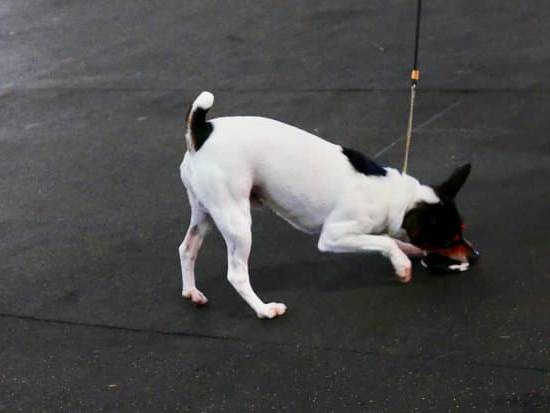Are you too old to train a new dog? This common misconception is often believed to be true, but the reality is that age should not be a determining factor when it comes to training a new pet. In this article, we will discuss the benefits of training a new dog at any age and address the unique challenges and adjustments that older individuals may need to consider.
Training a new dog at any age brings numerous benefits for both the owner and the pet. It provides mental stimulation, strengthens the bond between the owner and the dog, and sets clear boundaries and expectations for behavior. These benefits are important for individuals of all ages, including older adults who may be considering bringing a new furry friend into their home.
While there are unique challenges that come with training a new dog as an older individual, it is important to understand that these challenges can be overcome with patience and adaptability. Adjusting training techniques to accommodate physical limitations, maintaining consistency, and seeking help from professional trainers or dog training classes are key strategies in successfully training a new pet at an older age.
The Benefits of Training a New Dog at Any Age
Training a new dog at any age comes with numerous benefits, both for the dog and the owner. Dogs are incredibly intelligent and capable of learning at any stage of life, and the process of training can be incredibly rewarding for both parties involved.
Bonding and Companionship
Training a new dog provides an opportunity to establish a strong bond and develop a deep sense of companionship. Regardless of age, dogs are eager to please their owners and thrive on positive reinforcement. Through training, owners can build trust, communication, and understanding with their new furry friend.
Physical and Mental Stimulation
Engaging in training activities provides dogs with the physical exercise and mental stimulation they need to stay healthy and happy. For older individuals, this also presents an opportunity for staying active and alert. Training a new dog can help older individuals maintain an active lifestyle by incorporating daily walks, playtime, and mentally stimulating activities into their routine.
Building Confidence
Training a new dog allows both the owner and the dog to build confidence. As an older individual, taking on the challenge of training a new dog can be empowering and fulfilling. It provides a sense of purpose and accomplishment that contributes to overall well-being.
Understanding the Unique Challenges of Training a New Dog as an Older Individual
Age should never be a barrier when it comes to training a new dog. While some may believe that they are too old to take on the task of training a new canine companion, the truth is that older individuals are more than capable of successfully training a dog. However, it’s important to understand and address the unique challenges that may arise when embarking on this journey as an older individual.
One of the main challenges that older individuals may face when training a new dog is physical limitations. Whether it’s reduced mobility or strength, these factors can impact the ability to engage in certain training activities.
It’s essential to acknowledge these limitations and make adjustments to training techniques accordingly. For example, utilizing equipment such as leashes with handles designed for better grip or enlisting the help of family members or professional trainers for certain physical tasks can make the training process more manageable.
In addition to physical limitations, older individuals may also encounter cognitive and sensory changes that can affect their ability to train a new dog. Conditions such as hearing or vision loss, as well as cognitive decline, can make communication and understanding cues more challenging. Despite these obstacles, with patience, perseverance, and innovative approaches such as using visual hand signals or incorporating scent-based training methods, older individuals can still effectively communicate with and train their dogs.
| Challenges | Adjustments |
|---|---|
| Physical limitations | Utilizing equipment designed for better grip; enlisting help from family members or professional trainers |
| Cognitive and sensory changes | Using visual hand signals; incorporating scent-based training methods |
Adjusting Training Techniques to Accommodate Physical Limitations
As an older individual, you may be wondering if you are too old to train a new dog. The good news is that age should not be a barrier when it comes to training a new canine companion. However, it is important to acknowledge and make accommodations for any physical limitations that may arise during the training process.
Adjusting your training techniques to accommodate physical limitations can make the process more manageable and enjoyable for both you and your new dog. Here are some tips for modifying your approach to training:
- Use positive reinforcement methods that do not require physical exertion, such as clicker training or treats
- Utilize training aids such as harnesses, leashes with ergonomic handles, or hands-free waist leashes to minimize strain on your body
- incorporate gentle exercises and stretches into your daily routine to improve flexibility and mobility
By incorporating these adjustments into your training regimen, you can create a comfortable and effective learning environment for both you and your new furry friend.
Remember that age should not limit your ability to build a strong bond with a new dog through training. With the right approach and accommodations, you can embark on this rewarding journey regardless of your age or physical limitations.
Remember that patience and consistency are key, and seeking support from professional trainers or dog training classes can also provide valuable guidance in this process. Additionally, considering adopting a mature or older dog who may already have some level of training can also be a great option for older individuals looking to bring a new canine companion into their lives.
The Importance of Consistency and Patience in Dog Training
When it comes to training a new dog, consistency and patience are key factors in achieving success. Regardless of age, these principles are essential for developing a strong and trusting relationship with your canine companion. Here are some important points to keep in mind:
- Consistency: Dogs thrive on routine and consistency, so it’s important to establish clear rules and expectations from the beginning. Whether it’s potty training, basic commands, or behavior modification, providing consistent cues and rewards will help your new pup understand what is expected of them. This can be particularly challenging for older individuals who may have less energy or physical limitations, but establishing a consistent routine will ultimately benefit both the owner and the dog.
- Patience: Training a new dog requires time, effort, and lots of patience. It’s important to remember that every dog learns at their own pace, and there will be setbacks along the way. Older individuals may need to adjust their expectations and take breaks as needed during training sessions. Remaining patient and understanding that progress takes time will lead to better results and a stronger bond with your furry friend.
- Mental stimulation: It’s crucial to provide mental enrichment for your dog through training exercises, interactive playtime, and puzzle toys. This is especially important for older individuals who want to keep their minds sharp while engaging with their new pet. By incorporating mental stimulation into daily activities, both the owner and the dog can enjoy a fulfilling and enriching experience together.
By prioritizing consistency, patience, and mental stimulation in dog training, older individuals can effectively build a positive relationship with their new pet while overcoming any physical limitations they may face. Additionally, seeking support from professional trainers or enrolling in dog training classes can provide valuable guidance and resources for successful training sessions. Remember, age should never be a barrier when it comes to starting the journey of training a new dog.
Seeking Help and Support From Professional Trainers or Dog Training Classes
The Benefits of Professional Help
As an older individual, you may find that training a new dog comes with unique challenges. Seeking help from professional trainers or enrolling in dog training classes can provide numerous benefits. These experts have the knowledge and experience to tailor training methods to accommodate your physical limitations while still effectively teaching your new dog.
Specialized Training Techniques
Professional trainers can introduce specialized training techniques that are suitable for older individuals. These techniques can focus on positive reinforcement, using verbal cues instead of physical gestures, and incorporating tools such as clickers or treat dispensers to aid in training. With their guidance, you can learn how to effectively communicate with your new dog without straining yourself physically.
Emotional Support and Guidance
In addition to practical tips and techniques, professional trainers and dog training classes can also offer emotional support and guidance. They can help you navigate any frustrations or challenges that may arise during the training process. Their encouragement and expertise can give you the confidence to continue the journey of building a strong bond with your canine companion, regardless of age. Remember, it’s never too late to seek help and enhance your skills as a dog owner.
Making the Decision to Adopt a Mature or Older Dog Instead
Many people may wonder, “Are you too old to train a new dog?” The answer is no. In fact, adopting a mature or older dog may actually be the perfect choice for individuals who are concerned about their age and the challenges of training a new dog.
Older dogs often come with the advantage of being house trained and having some basic obedience skills already in place. This can make the process of integrating them into your home and lifestyle much easier compared to starting from scratch with a young puppy.
Another benefit of adopting an older dog is that they typically have lower energy levels and exercise requirements. This can be ideal for older individuals who may not have the same level of physical stamina as younger dog owners. Additionally, older dogs tend to be more relaxed and settled, making them great companions for those who prefer a quieter and more laid-back lifestyle.
When considering whether to adopt a mature or older dog instead of training a new puppy, it’s important to keep in mind that every dog has its own unique personality and temperament. Take the time to meet different dogs at shelters or rescue organizations to find the best match for your individual needs and situation.
Finally, don’t let age be a barrier to forming a strong bond with a canine companion. Dogs of all ages are capable of learning, adapting, and forming deep connections with their owners. Whether you choose to train a new puppy or adopt an older dog, the most important factor is the love, care, and dedication you are willing to give to your new furry friend.
| Benefits of Adopting an Older Dog | Considerations When Adopting an Older Dog |
|---|---|
| Already house trained | Ensure compatibility with your lifestyle |
| Likely lower energy levels | Consider any medical needs or health concerns |
| More relaxed and settled | Meet multiple dogs to find the best match |
Conclusion
In conclusion, the idea that you are too old to train a new dog is simply a misconception. Age should not be a barrier when it comes to welcoming a new furry friend into your life and providing them with the love and guidance they need. The benefits of training a new dog at any age are numerous, from the opportunity to form a strong bond with your pet to the mental stimulation and companionship they bring.
As an older individual, it’s important to recognize and understand the unique challenges that may arise when training a new dog, such as physical limitations. However, with adjustments to training techniques and the support of professional trainers or dog training classes, these challenges can be overcome.
Maintaining consistency and patience throughout the training process is key to success, regardless of age. Taking the time to understand your dog’s behavior and needs will ultimately lead to a harmonious relationship built on trust and communication.
Additionally, for those who may feel overwhelmed by the idea of starting from scratch with a new puppy, adopting a mature or older dog could be a wonderful alternative. Many older dogs are in need of loving homes and have already undergone some level of training, making them ideal companions for individuals of any age.
In summary, whether you are in your 20s or 80s, it’s never too late to embark on the journey of building a strong bond with your canine companion through training. Age should not deter anyone from experiencing the joy and fulfillment that comes with welcoming a new dog into their life. With dedication, patience, and support, both you and your new furry friend can enjoy many happy years together.
Frequently Asked Questions
How Old Is It Too Late to Train a Dog?
It is never too late to train a dog, but it may take more time and patience with older dogs. While puppies are easier to train because they are more adaptable, older dogs can still learn new behaviors with consistent training.
What Age Is a Dog Hardest to Train?
The age at which a dog is hardest to train can vary depending on the breed and individual temperament. For some, the teenage stage (around 6-18 months) can be challenging as they test boundaries and act more independent. This phase requires firm but gentle consistency in training.
Is 3 Years Old Too Old to Train a Dog?
Three years old is not too old to train a dog, although it may require more effort compared to training a younger pup. Dogs of this age can still learn new commands and behaviors through positive reinforcement and patience from their owners.

Welcome to the blog! I am a professional dog trainer and have been working with dogs for many years. In this blog, I will be discussing various topics related to dog training, including tips, tricks, and advice. I hope you find this information helpful and informative. Thanks for reading!





